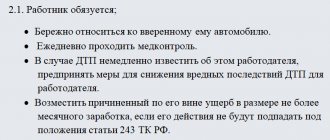Legislative regulation
First of all, issues of parental responsibility are considered in the most important state normative act - the Constitution of the Russian Federation. By referring to its text (Article 38, Part 2), you can find out that the father and mother have completely equal rights to education and bear equal responsibility. Moreover, even in cases where they are forced to temporarily entrust the upbringing of their children to relatives or employees of specialized child care institutions, this does not relieve them of full responsibility.
The rights of the child and parental responsibilities towards him are recorded in the Family Code of the Russian Federation. In accordance with its provisions, father and mother are equal to each other both in terms of rights and responsibilities. The following main points can be highlighted:
- Mom and dad are completely equal to each other, while the law obliges them to perform only actions approved by the state in relation to the baby.
- Parental responsibility arises when the baby is born. Its termination is possible in a number of cases. First of all, if the child turns 18 years old. Next - upon the onset of emancipation (this is the recognition of a person under 18 years of age as fully capable if he gets married or gets a job).
- It is the parents who have the priority right in educational matters over any other persons. They can choose the forms and methods of working with the baby themselves, but the choice is limited by international documents, in particular the UN Convention on the Rights of the Child and Russian legislation. Thus, children can grow up in families professing different religions, but harshness and violence towards them is unacceptable.
According to the RF IC, which was written based on the UN Convention, the right to raise one’s own child is a personal right of any parent, and it can be deprived only if there are grounds specified in the legislation. Certain aspects of parental responsibility are also presented in civil legislation.
Forms of punishment
Not everyone is conscientious about their rights and responsibilities in relation to minors. Let's consider what types of punishment are provided for at the legislative level.
For failure to fulfill or improper fulfillment of responsibilities for raising a child, violation of his rights and legitimate interests, two forms of punishment are provided for parents:
- warning;
- fine (its amount is determined individually, can be 1-5 minimum wages).
In addition, there are 4 possible forms of liability:
- administrative;
- civil;
- family;
- criminal
The latter is most often used in cases of child abuse, constant beatings, and humiliation. In addition, there is also a last resort that is used to protect children if others are powerless. We are talking about deprivation of rights to a child. Let us note that it is possible to restore such rights, but this is a very long and complex procedure.
Even deprivation of rights to a child does not relieve fathers and mothers from all responsibilities. So, they will need to pay alimony.
In some cases, restriction of rights may be used. For example, if the baby’s presence with his father or mother poses a danger for him that arises for a reason beyond the control of the parent. This may be a serious illness of the latter (most often mental, chronic) or a very difficult financial situation. In this case, in order to protect the baby, a decision may be made to restrict.






